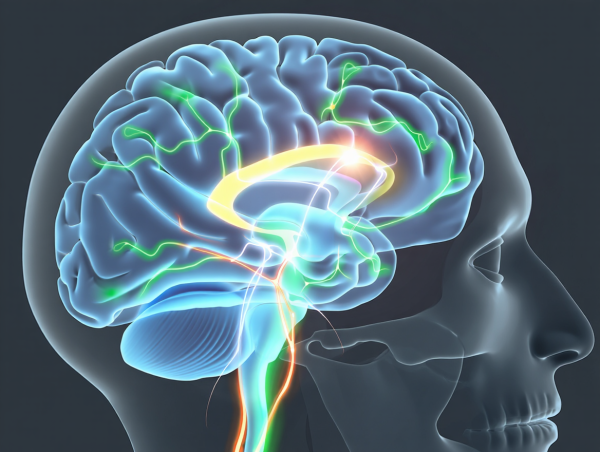Understanding Dopamine and Its Role in Motivation
What is it that pushes you to get out of bed in the morning, to pursue a goal, or to choose a piece of cake over a salad? The answer, in large part, is dopamine. You may have heard of dopamine in relation to pleasure, but its role is much broader and more nuanced than that. It is the primary chemical of motivation, drive, and reward in the brain. Understanding dopamine can help you understand your own patterns of behavior, especially if you struggle with conditions like depression or ADHD.
At Televero Health, we find it helpful to explain the “why” behind your symptoms. When you see how a brain chemical like dopamine influences your ability to feel motivated and focused, it becomes clear that these challenges are rooted in biology, not a lack of willpower.
What Is Dopamine?
Like serotonin, dopamine is a neurotransmitter—a chemical messenger that carries signals between nerve cells in the brain. It is a key player in the brain’s reward system. This system is designed to encourage you to repeat behaviors that are essential for survival, like eating and procreating. When you do something that the brain perceives as rewarding, it releases a little burst of dopamine, which makes you feel good and teaches your brain to seek out that activity again.
 Dopamine’s job isn’t just to provide pleasure after the fact; it’s also about anticipation. The promise of a potential reward is what generates the motivation to act. Dopamine is what makes you want to do things.
Dopamine’s job isn’t just to provide pleasure after the fact; it’s also about anticipation. The promise of a potential reward is what generates the motivation to act. Dopamine is what makes you want to do things.
Dopamine’s Many Jobs
The dopamine system is central to many critical brain functions. It is heavily involved in:
- Motivation and Drive: It is the engine that powers your desire to work toward a goal. Low dopamine activity can lead to apathy and a lack of motivation.
- Focus and Attention: Dopamine helps you to focus your attention and decide what is important enough to pay attention to. This is why it’s so central to understanding ADHD.
- Pleasure and Reward: It is responsible for the feeling of pleasure you get from enjoyable activities, from eating a good meal to achieving a personal goal.
- Motor Control: Dopamine is essential for controlling voluntary muscle movements. The loss of dopamine-producing cells is the cause of the motor symptoms in Parkinson’s disease.
- Learning and Memory: By reinforcing certain behaviors, the reward system helps you learn and form habits.
The Link to Depression and ADHD
When the dopamine system isn’t functioning optimally, it can have a significant impact on your mental health.
In depression, one of the key symptoms is anhedonia—the loss of interest or pleasure in activities you once enjoyed. This is strongly linked to a sluggish dopamine system. Things that used to feel rewarding no longer do, so you lose the motivation to pursue them. This isn’t just a psychological state; it reflects a change in brain chemistry. The drive to engage with the world is diminished.
In ADHD, the issue is thought to be related to problems with dopamine signaling. The brain may not produce enough dopamine, or the receptors that receive it may not be working efficiently. This can explain many of the core symptoms of ADHD. The brain is constantly seeking stimulation to get a dopamine hit, which can lead to restlessness and distractibility. Without enough dopamine to regulate focus, it’s hard to stick with tasks that aren’t immediately interesting or rewarding. Medications for ADHD, particularly stimulants, work by increasing the amount of available dopamine in the brain, which helps to improve focus, reduce impulsivity, and calm hyperactivity.
Understanding dopamine helps to frame these conditions in a new light. A lack of motivation in depression isn’t laziness. An inability to focus with ADHD isn’t a choice. Both can be direct results of how this powerful chemical is working in your brain. Treatment aims to help regulate this system, restoring your natural capacity for motivation, focus, and reward.
Key Takeaways
- Dopamine is a key neurotransmitter that drives motivation, focus, and the brain’s reward system.
- It is responsible for making you want to pursue goals and for the feeling of pleasure you get from rewarding activities.
- Problems with the dopamine system are strongly linked to the lack of motivation in depression and the focus issues in ADHD.
- Treatments for these conditions often work by helping to regulate dopamine levels in the brain, improving drive and attention.
Ready to take the first step? We can help. Get started with Televero Health today.
